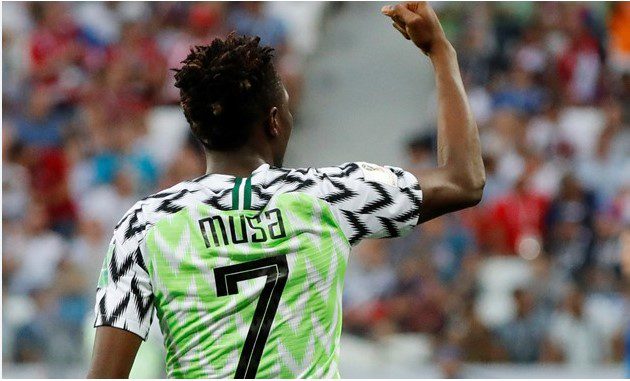The FIFA World Cup is one of the most revered sports tournaments globally. Eagerly savored by billions worldwide, the world of football was alight with ecstasy when Messi’s Argentina overcame Mbappe’s France in a thrilling final.
As Africans, the FIFA World Cup is always another opportunity to restate Africa’s football superiority. Aside from the millions of African fans cheering their teams on, punters also eagerly seek the mouthwatering betting markets bookies offer on African matches in the FIFA World Cup.
For example, mobile bettors using the Bet9ja old mobile for iphone enjoyed enhanced winning opportunities when Morocco defeated Portugal in the last edition of the World Cup.
Indeed, some African goalscorers have etched their names in history for the valuable goals they scored in this elite tournament. This article celebrates six of the highest African goalscorers in FIFA World Cup history.
Samuel Eto’o (Cameroon) – 3 Goals
The Cameroonian legend, Samuel Eto’o, needs no introduction. He has deservedly earned his place among the top African goal scorers in FIFA World Cup history with his three goals.
Eto’o scored his first World Cup goal in a 1-0 victory over Saudi Arabia during the 2002 FIFA World Cup in Japan and South Korea. In their subsequent game, he scored again in Cameroon’s 1-0 victory over Tunisia.
Although Cameroon didn’t make it out of the group stage, Eto’o had left his stamp on the competition.
In 2010, Eto’o had his best World Cup performance, scoring two goals in the group stage to help Cameroon advance to the knockout round. Moreover, he served as team captain in Cameroon’s Round of 16 encounters against eventual champions the Netherlands, but they could not advance.
Salif Keita (Mali) – 3 Goals
Despite playing in a different era than most, Salif Keita, a Malian striker, deserves to be recognized for ranking among the top African goal scorers in FIFA World Cup history.
Keita contributed significantly to Mali’s first-ever World Cup debut in 1972 by scoring three goals.
As Mali defeated Upper Volta 4-2 in their World Cup opener in 1972, Keita had his best World Cup performance (now known as Burkina Faso). In their second game, in which they lost 2-1 to Congo, he also scored the only goal for Mali.
Keita has demonstrated his abilities to the world even if Mali could not get past the group stage. Shortly after the competition, he announced his retirement from international football, although his reputation as one of Mali’s all-time finest players remains.
Hossam Hassan (Egypt) – 4 Goals
The Egyptian striker Hossam Hassan is one of the most regular goal scorers. Hassan, who has four goals to his credit, was essential in assisting Egypt to reach the 1990 World Cup for the first time.
His ranking among the best African goal scorers at the FIFA World Cup is a testimonial of his talent and commitment.
In Egypt’s second World Cup game of 1990, a 4-0 victory over North Korea, Hassan had his best performance, scoring a hat-trick.
Moreover, he scored the lone goal for Egypt in their final game, a 1-1 draw with Ireland.
Despite Egypt’s failure to proceed past the group stage, Hassan had shown his abilities to the world. He eventually became one of Egypt’s all-time finest players, scoring 69 goals in 169 matches for the national team.
Ahmed Musa (Nigeria) – 4 Goals
The Nigerian attacker Ahmed Musa is one of the game’s brightest prospects in Africa. His ranking among the continent’s greatest goalscorers in World Cup history speaks much about his talent and potential.
Musa was instrumental in Nigeria’s qualification for the 2014 and 2018 tournaments, scoring four goals.
With Nigeria’s 2-2 loss to Argentina in the tournament’s second game, Musa had his breakthrough performance. Also, in Nigeria’s 2-0 victory over Iceland in their final match, he scored both goals.
In the 2018 World Cup, Musa became the first Nigerian player to score in two different World Cups as he assisted on Nigeria’s goals in a 2-0 victory over Iceland.
Roger Milla (Cameroon) – 5 Goals
Roger Milla, an attacking midfielder for the Cameroon national team, is a legendary figure in African football and ranks among the most outstanding African goalscorers in FIFA World Cup history. Milla significantly aided Cameroon’s 1990 tournament run to the quarterfinals with his five goals.
Four of Cameroon’s seven goals were scored by Milla in his best World Cup performance, which occurred in 1990. He scored the oldest World Cup goal at 38, and his ecstatic dance around the corner flag made headlines.
Milla is still held in high regard in African and Cameroonian football. He was given the African Player of the Century title for his services to the game in 1999.
Asamoah Gyan (Ghana) – 6 Goals
Asamoah Gyan, a Ghanaian striker, is among the continent’s top goalscorers in football. His inclusion in the list of the leading African goal scorers in FIFA World Cup history is evidence of his talent and reliability.
Gyan contributed significantly to Ghana’s 2010 World Cup success with his six goals, which helped them advance to the quarterfinals.
Gyan’s best World Cup performance occurred in 2010 when he contributed to three of Ghana’s five goals. In the round-of-16 encounter between Ghana and the United States, he also scored the game-winning goal in extra time to advance his nation to the quarterfinals for the first time.
Given that he is still among the most successful players in Ghanaian football history, Gyan has immensely impacted the game there. In 2010, he received the BBC African Footballer of the Year award, one of several honors and distinctions he has received throughout his career.
Conclusion
Every one of these players, from the renowned Roger Milla to the prolific Asamoah Gyan, has left a lasting impression on the game and inspired later generations of African footballers. They have become true idols of the beautiful game thanks to their talent, tenacity, and passion, and their place in African football history is unquestionable.










